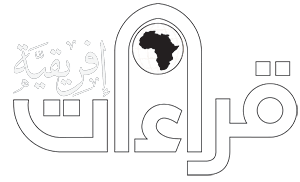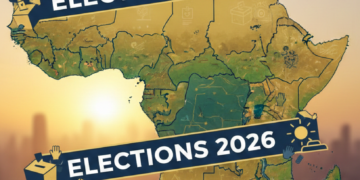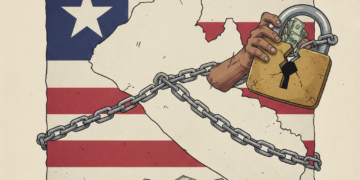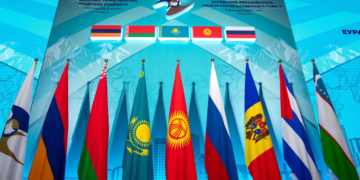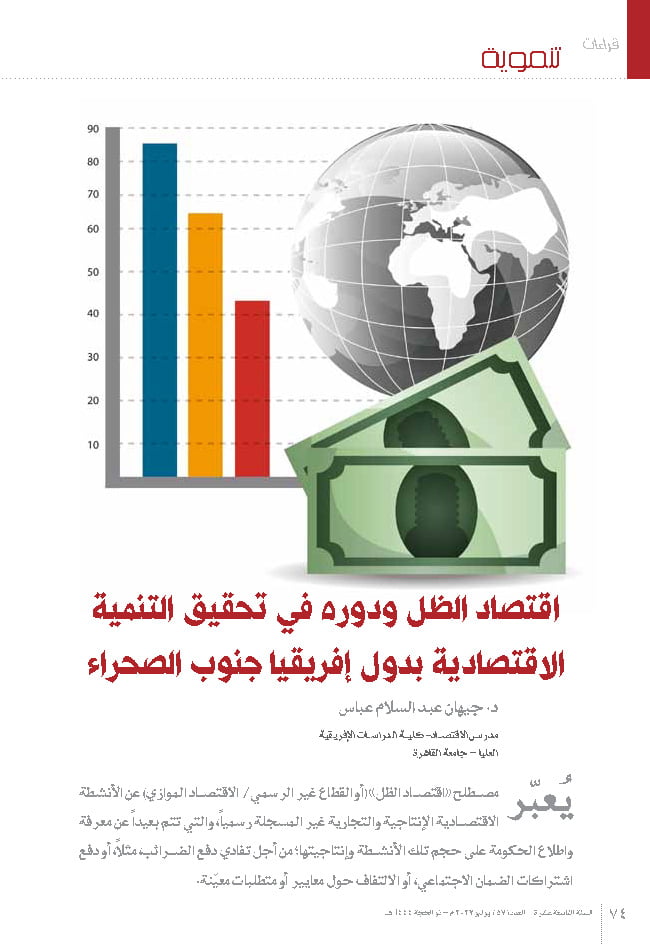Abstract: The term Shadow Economy or (informal sector) is the productive and commercial economic activities that are not officially registered and are carried out away from the government's knowledge, neither of their size or productivity of these activities. The main aim is to avoid paying taxes, for example, paying social security contributions, or circumventing certain standards or official requirements, as this sector is also considered to be largely unprotected by law. In recent years, many African countries have experienced a revival in economic growth, but this has not necessarily generated decent jobs, rather, unemployment rates have remained high among young African adults. Little attention has been given to the role of the informal sector in promoting growth and job creation. In reality, the informal sector contributes to about 55% of sub-Saharan Africa's GDP and employs about 80% of the labor force. Hence the importance of the informal sector in most African economies in terms of the opportunities it provides to the most vulnerable population groups, and its contribution to the gross domestic product significantly, although the shadow economy represents an opportunity to contribute to the economic development process in sub-Saharan Africa, it There are also many problems, the most important of which is that most informal workers lack a guaranteed income, employment benefits, social protection, tax evasion, etc. In this sense, this study aims to present and analyze the role of the shadow economy, or the so-called informal sector, in the economic development process in sub-Saharan Africa. The study also deals with the most important features and characteristics of this sector, and the nature of the problems it faces, in addition to the proposed ways to enhance the role of this broad economic sector and ways to integrate it within the activities of the formal sector.
الملخص: يعبر مصطلح اقتصاد الظل أو ( القطاع غير الرسمى ) عن تلك الأنشطة الاقتصادية الانتاجية والتجارية غير المسجلة رسمياً ، وتتم بعيدا عن معرفة واطلاع الحكومة على حجم تلك الأنشطة وانتاجيتها ؛ من أجل تفادي دفع الضرائب مثلا أو دفع اشتراكات الضمان الاجتماعي أو الالتفاف حول معايير أو متطلبات معينة، كما يعتبر هذا القطاع غير محمى بالقانون الى حد كبير . وفي السنوات الأخيرة ، شهدت العديد من البلدان الأفريقية انتعاشًا في النمو الاقتصادى ، لكن هذا لم يولد بالضرورة وظائف لائقة ، بل ظلت معدلات البطالة مرتفعة بين الشباب الأفارقة البالغين. ولم يول سوى القليل من الاهتمام لدور القطاع غير الرسمي في تعزيز النمو وخلق فرص العمل ، بينما في الواقع ، يساهم القطاع غير الرسمي بحوالي 55 % من الناتج المحلي الإجمالي لأفريقيا جنوب الصحراء ويشغل نحو 80% من القوة العاملة. ومن هنا برزت أهمية القطاع غير الرسمي في معظم الاقتصادات الأفريقية من حيث الفرص التي يوفرها للفئات السكانية الأكثر ضعفاً ، ومساهمته فى الناتج المحلى بشكل ملحوظ ، ولكن على الرغم من أن اقتصاد الظل يمثل فرصة للمساهمة فى عملية التنمية الاقتصادية بدول أفريقيا جنوب الصحراء ، إلا أنه ينتابه العديد من المشكلات أيضا أهمها أن معظم العمال غير الرسميين يفتقرون إلى دخل مضمون ومزايا توظيف وحماية اجتماعية، والتهرب الضريبى ، ...الخ . ومن هذا المنطلق ، تهدف هذه الدراسة الى عرض وتحليل دور اقتصاد الظل أو ما يسمى القطاع غير الرسمى فى عملية التنمية الاقتصادية بدول أفريقيا جنوب الصحراء . كما تتناول الدراسة أهم ملامح هذا القطاع وخصائصة ، وطبيعة المشكلات التى يواجهها ، هذا بالاضافة الى السبل المقترحة لتعزيز دور هذا القطاع الاقتصادى العريض وطرق دمجه ضمن أنشطة القطاع الرسمى.
